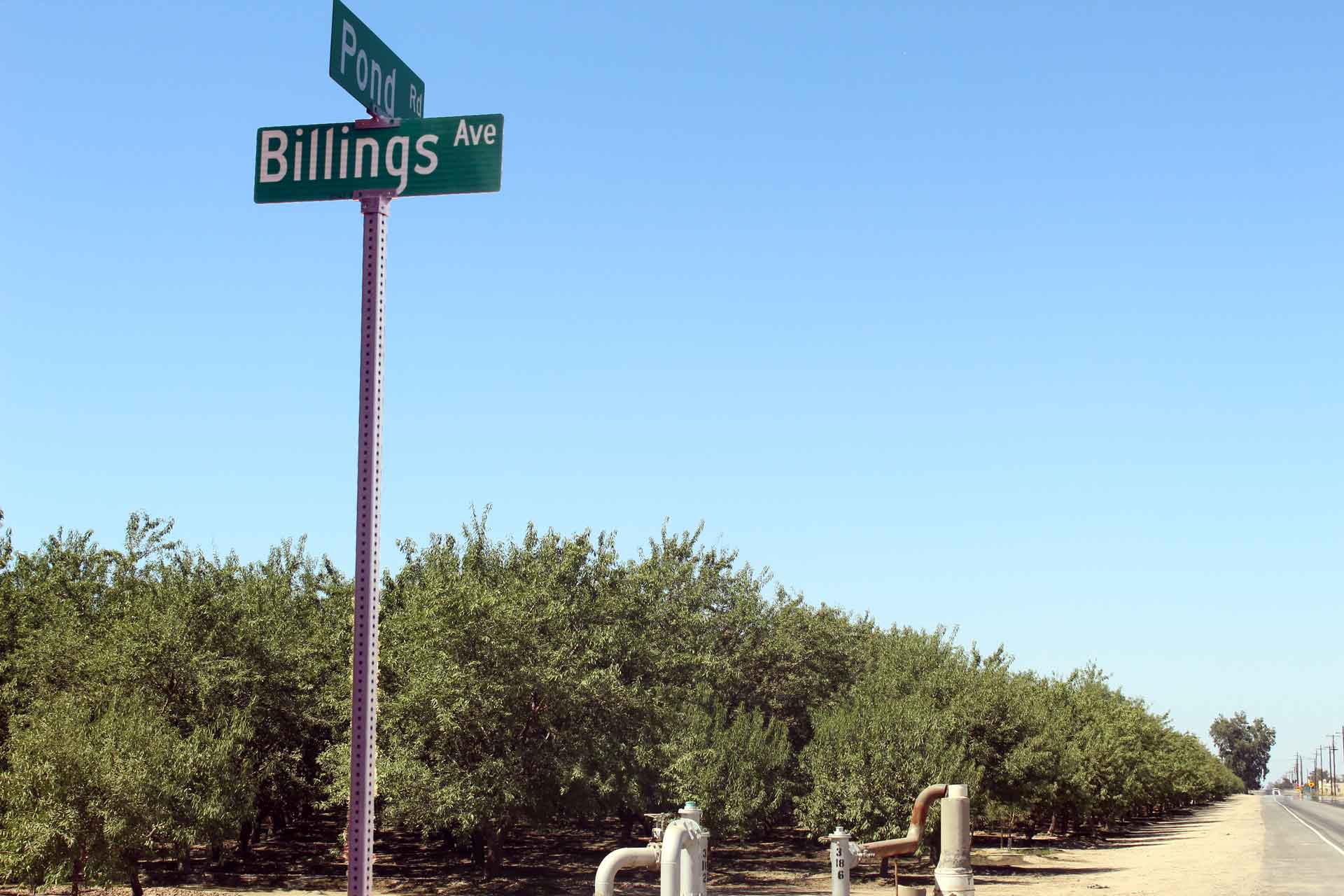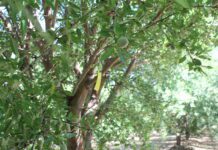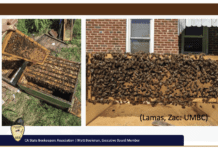Longevity and perseverance are rooted deep in the Billings family. When you drive past the intersection of Pond Road and Highway 43, you wouldn’t even know it was a town let alone home to the start of something great for the Billings family. Amidst the almond orchards and grape vineyards is a little road sign that reads “Billings Ave”. In 1913, the Billings family settled in Pond, California and that same property is still being farmed by the family today. Longevity rich in farming is now a main factor in developing the Billings new product.
Matt Billings is the fourth generation of Billings Ranches. When you walk into their farm office, you immediately sense the longevity and history associated with their family business. The building was originally a bank the family owned and operated through the great depression. Matt’s office sits directly above the old bank vault. It is a place where generations before him gathered to discuss farming and ways to set themselves apart from the rest. Something that continues to ring true to the family today.
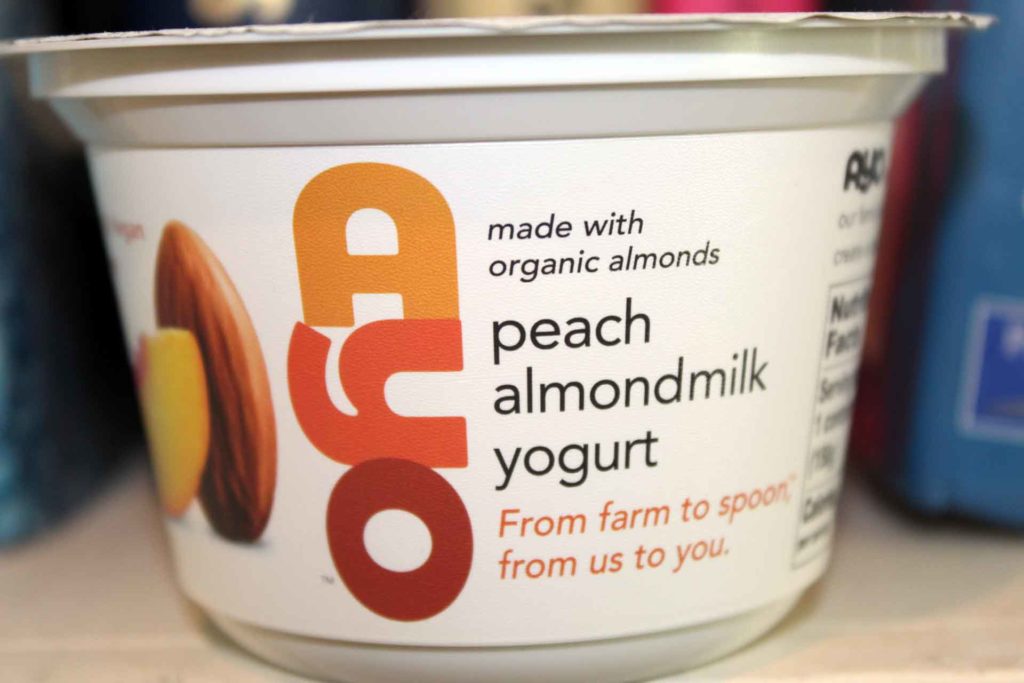
Changing With the Times
The Billings farmed a diversified planting mix of crops across the generations. Everything from peaches, cotton, beans, potatoes and even lettuce. As water availability changed over time, their farming portfolio changed with it. Billings were not afraid to try something new and maybe even something others would never think to try.
In the late 1960’s the Billings saw water becoming increasingly more expensive and looked to a more stable and high value crop. They planted almonds and have since vertically integrated into every aspect of almond production. After graduating from University of California (UC) Davis, Matt came back to the farm and started marketing their own almonds in the late 90’s. In the early 2000’s, the family partnered with another local grower and founded Pacific Almond to hull, shell and process almonds. Just a mere five years later, they become the sole owners. They have grown, processed and marketed their almonds from start to finish ever since.
Pacific Almond is mostly wholesale, selling to customers who are going to further process the almonds. Matt explains “they are going to roast, salt, put it in their bags, do confectionary, we are selling mostly to manufacturers in foreign countries.” Billings didn’t have a real brand identity in their almonds. Other companies were taking the family almonds and creating something with it that consumers would then purchase. Billings were looking for a way to create a consumer direct business that wasn’t already overly flooded with competitors. They wanted to show their longevity in farming by completing the circle from farm to spoon.
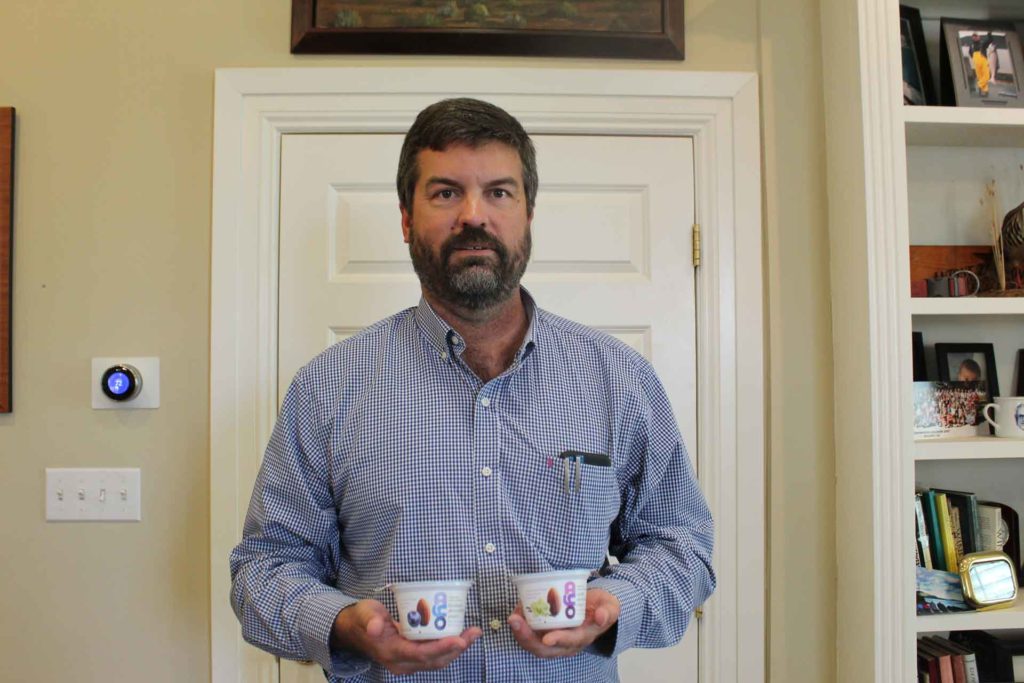
Farm to Spoon
They ruled out almond butter, almond milk, almond ice cream and even protein bars just by walking through the grocery market and being overwhelmed by the amount of options. When exploring a value-added product Matt recalls, “I eat a lot of yogurt all the time and one day it just clicked.” AYO would be the Billings family newest way to differentiate themselves from others sitting on the shelves.
When they explored almond milk yogurt, Billings noticed more opportunity for a new product. “We wanted to create something that tasted great and was more nutritious than the other products on the shelves.” AYO’s mission is to connect consumers from ‘farm to spoon, from us to you’. “Know where your product comes from, was what we are shooting for.” Billings saw so many other brands merely just a brand, not a farm or family as well. “There are few products on the shelves that you can say came direct from a farmer. They are either pools of growers added together to create a yogurt, or cooperatives making blends of almond milk with growers across the state.” Billings wanted the history rich in farming to be direct to the consumer.
AYO was formed from a desire to connect their farm to consumers and bring a new almond milk yogurt to the marketplace. What does AYO mean? Matt explains “It’s simple. Almond Yogurt. My friends said it was too simple, but I think it was genius.” Billings wanted the ingredients to be just as simple as the name.
When you dip your spoon into AYO, you know the almonds used to create it came from Billings Ranches. Billings knew what he wanted, but it took three years of trial and error to get the final product “We were trying to keep a very clean label also without all those additives,” Billings adds, “A cup of our almond yogurt has over 20 almonds in it.” He wanted to set themselves apart and was very persistent that his ingredients did the same thing. “Others are trying to mask the taste of their product and make it taste like something it isn’t. We intentionally toast the almonds. We want it to taste like almonds, not Chobani Greek yogurt. Its almond yogurt.” Billings knew that less was more when it came to a great value-added product. Being a farmer and having the connection to the product, he believes helped him in developing his product.
Matt also states, “We saw an advantage in that we grow organic ourselves.” If he was going to create a new product in the plant-based sector, he knew his product had to be organic. Matt felt it would help him leverage his new product into more markets. Being the farmer of the product helped him to be able to make the costs the same, whether he decided to choose his organic or conventional product. Knowing organic would help him sell his new product for a premium he took the advantage he saw. His persistence has led him every step of the way.
When asked about marketing the product, “It is more challenging than we thought it was going to be. We had no experience in the retail side, and it is a completely different market.” Matt reflects on creating a new product. He knew it would take time, but he also knew he had a good product.
Being a new player in the market wasn’t easy. Billings recalls hearing NO or just not receiving a reply frequently as a response when he was trying to get his product into new markets. Billings said, “Persistent phone calls and not giving up. No replies a lot of times until they realized this guy isn’t going to stop until I answer his emails.” Billings says, adding it pays off to be persistent.
He knew the ingredients he needed to have a successful product. “When we found a manufacturer or broker, they would steer us in a good direction… we were a small company from Delano asking for a bucket of fruit. We were competing with the Dreyers of the world.” Billings owes the success of where they are in their business growth to persistence.
“You hear all these stories of entrepreneurs who fail or it takes them years and years to become successful. You just have to be persistent. I think we have a unique product because we are the farmer.” The AYO business model is the closest thing to connecting to the consumer. “We are trying to bring everything closer to the source,” Billings said.
With consumers longing for that connection to their food source, it seems like a great business model. “The commodity side of agriculture wears you down, you really want to be able to share your product with someone and build a brand…it brings a whole new set of difficulties and challenges, but if you can share your product and people like it, you’ve won,” Billings said.







